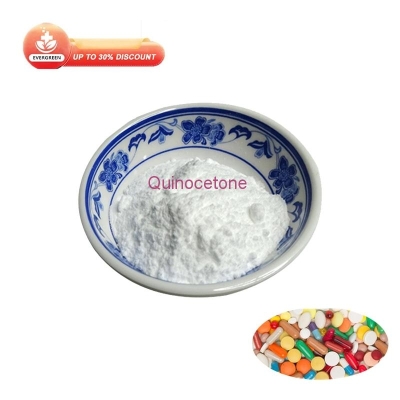Second bargaining, the attitude of the government, the academic community, pharmaceutical enterprises!
-
Last Update: 2015-04-29
-
Source: Internet
-
Author: User
Search more information of high quality chemicals, good prices and reliable suppliers, visit
www.echemi.com
Source: on April 29, 2015, Sun Yang, deputy director of the Department of drug policy and essential drug system of the national health and Family Planning Commission, firmly opposed the second price negotiation At the same time, Sun Yang said that relevant ministries and commissions are working out the pilot work plan for establishing a drug price negotiation mechanism, establishing a multi-party negotiation mechanism for professional drugs and exclusive products, and the hospital purchases drugs according to the negotiation results As an important part of drug bidding and purchase, the government's attitude of second bargaining is controversial in the industry From the perspective of China's policy, there is no clear legal basis for the second bargaining In 2010, Article 36 of the code for centralized drug purchase in medical institutions jointly issued by the former Ministry of health and the rectification Office of the State Council clearly stipulates that medical institutions shall purchase and sell drugs in accordance with the contract and shall not bargain twice In 2013, there was a rumor in the pharmaceutical industry that China would improve the drug bidding specifications, and the scheme formulated by relevant departments changed from "no second bargaining" to "allow second bargaining" Since then, the pace of promoting the legalization of second bargaining has never stopped Several opinions on promoting the reform of drug distribution field issued in April 2013 requires to explore and establish a negotiation mechanism, which is interpreted by the media as opening the door for the second negotiation Academic support in December 2014, the Graduate School of the Chinese Academy of Social Sciences and the social sciences literature press jointly released the blue book of medical reform: report on the reform of China's medical and health system (2014-2015) The blue book of medical reform suggests that hospitals should be allowed to bargain twice, which is an effective way to reduce drug prices According to the blue book of medical reform, allowing the second price negotiation can solve the five problems, such as the general reduction of drug prices, the improvement of the enthusiasm of medical institutions, the non governance of commercial bribery, no need to increase the financial burden, and the promotion of the reform of drug centralized bidding system In the process of the rumor that the state will promote the legalization of the second bargaining, there is no lack of support from scholars Geng Hongwu, general marketing consultant of Jiuzhoutong group, who studies drug bidding policies all the year round, believes that the second bargaining is an important means for the market mechanism to play a role, and the only means to turn the "hidden rebate" into a clear one With the increasing proportion of private capital entering the medical institutions, he predicts that there will be a spark in this way in the future Scholars who agree with the implementation of the second bargaining think that the prohibition of the "second bargaining" in hospitals has to a certain extent curbed the open and transparent price competition mechanism of enterprises, and forced enterprises to choose private and illegal "kickbacks" Competition, the establishment of hidden interest chain among officials, pharmaceutical enterprises, presidents, doctors and medical representatives, makes the problems of high drug price, drug abuse, expensive medical treatment and tense doctor-patient relationship become more and more serious On the contrary, pharmaceutical enterprises clearly oppose the implementation of two price negotiations During the two sessions in 2013, opposition to the second bargaining reached its peak Pharmaceutical enterprises generally believe that the implementation of the second bargaining, is on the basis of bidding, but also through the hospital's bargaining link, for pharmaceutical enterprises, it is a "second crime" There are many reasons why pharmaceutical companies oppose the second bargaining From the aspect of system design, the second bargaining will disturb the drug bidding system that our country has established for many years At the same time, the legalization of the second bargaining will violate the bidding law, contract law and other relevant laws, such a system is not feasible From the aspect of profit distribution, the final bid price of drug bidding is determined by the state, and part of the profits have already flowed into each link of bidding If the medical institutions negotiate the price again on the basis of the bidding price, it is bound to produce new benefit distribution Who will pay for this part of the benefits? From the drug purchase level, if the hospital excessively reduces the drug price, it may affect the quality of drugs, and may also lead to the false low price of drugs In addition, the second price negotiation only has the effect of price reduction for domestic drugs, but has little effect on imported drugs and joint-venture drugs In addition to theoretical arguments of support and opposition, there are also practitioners in China who carry out the second bargaining In 2012, Jiangsu implemented the second bargaining system, and the local health bureau also established a bargaining group According to relevant media reports, when Jiangsu carries out the second price negotiation, the price negotiation team will first lower the drug price For example, the drug priced at 100 yuan may become 86 yuan, and the pharmaceutical distribution company will occupy five operating costs The price of pharmaceutical companies to the pharmaceutical distribution company will become 81 yuan After the distribution company transferred the drugs to the hospital, the displayed price was 100 yuan, and the hospital also sold them according to 100 yuan 14 yuan of the second price reduction will be transferred back to the hospital by the pharmaceutical distribution company A payment path of "the government changes money, the health bureau comes out, the pharmaceutical distribution company makes money, and the pharmaceutical enterprise pays money" is gradually clear This is the second bargaining in Jiangsu Province, and the pharmaceutical enterprises eventually become the buyers But pharmaceutical companies and industry experts generally believe that the government should pay for the cancellation of the elimination of drug-based care and the establishment of a compensation mechanism A year later, second bargaining in Jiangsu Province was banned In 2013, Jiangsu Price Bureau issued a policy requiring medical institutions in the province to strictly implement the drug price policy and not to conduct "second bargaining" or disguised "second bargaining" with drug production and distribution enterprises to seek improper interests The dispute about the second negotiation, which is confused and anxious, has never been reduced Whether it is in favor of the implementation of the second negotiation, the sale and return to the market, or against the implementation of the second negotiation, the compensation will be handed over to the government Whether the second bargaining should be legalized or not has never found a balance point But any policy is to better serve the medical reform and solve the problem that it is difficult and expensive for the masses to see a doctor If we can find the best balance between the second price negotiation and the elimination of medicine, we may play the purpose of reducing the price of medicine.
This article is an English version of an article which is originally in the Chinese language on echemi.com and is provided for information purposes only.
This website makes no representation or warranty of any kind, either expressed or implied, as to the accuracy, completeness ownership or reliability of
the article or any translations thereof. If you have any concerns or complaints relating to the article, please send an email, providing a detailed
description of the concern or complaint, to
service@echemi.com. A staff member will contact you within 5 working days. Once verified, infringing content
will be removed immediately.







